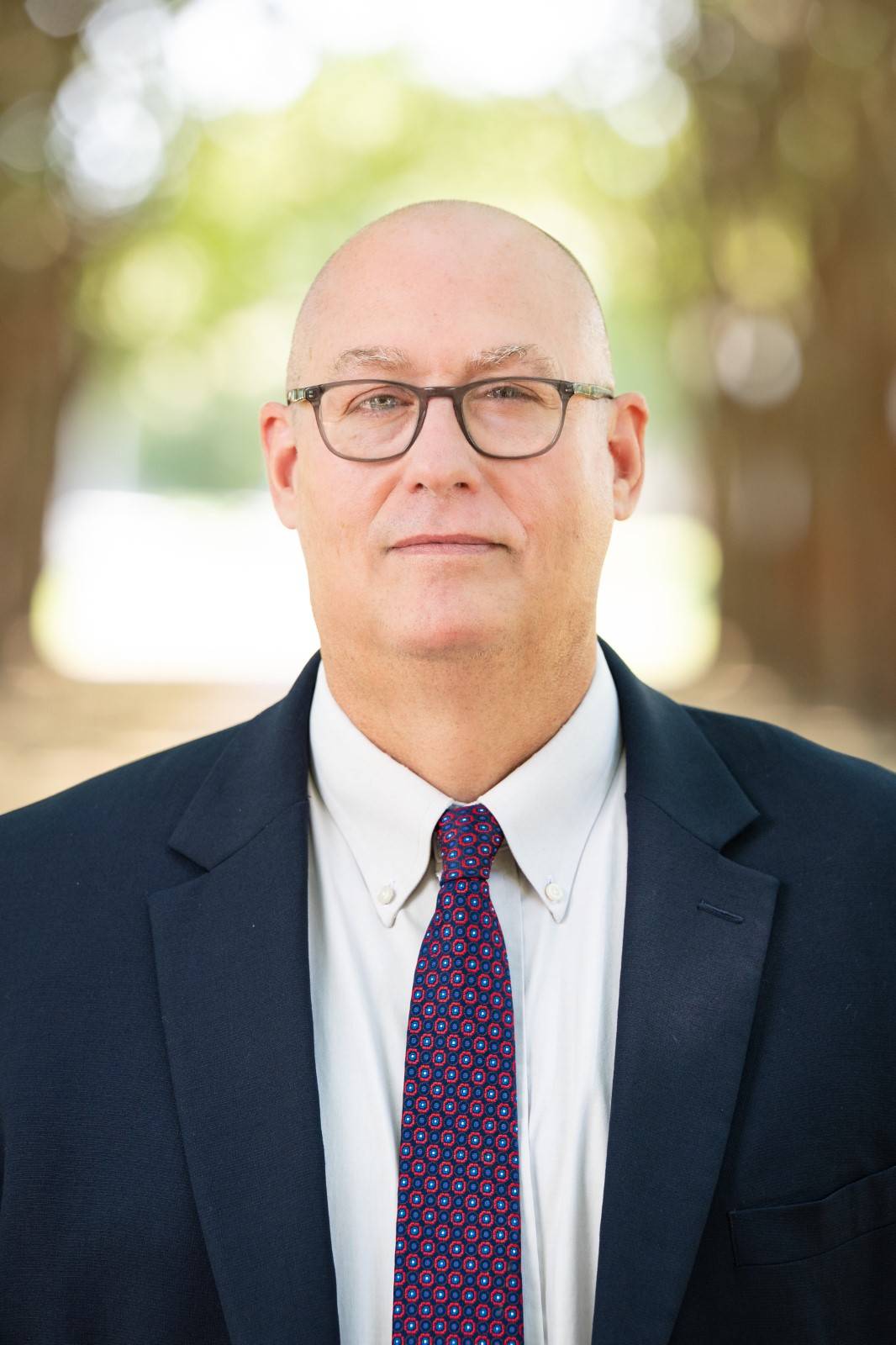Louisiana Virtual School Helped Fill Education Gap in Wake of Hurricanes Katrina and Rita
August 08, 2025
When hurricanes Katrina and Rita blasted their way across Louisiana’s coast 20 years ago, the storms ravaged more than just homes, neighborhoods, and families.
They wreaked havoc on the education system – destroying or badly damaging schools across South Louisiana while scattering children (and their teachers) across the state and the region.
But LSU and its education faculty and alumni played a crucial role in attempts to maintain and restore that system.
Allen Grant, a newly minted doctoral graduate (educational leadership and research with a concentration in educational technology) in 2006, had taken an interest in online education during his time at LSU.

Allen Grant
He helped transform the Louisiana Virtual School into an entity that taught Louisiana’s far-flung high schoolers.
Starting in the early 2000s, the Virtual School taught mostly foreign language courses online to students at high schools that didn’t offer those courses.
Once the storms hit and the damage assessed, the Virtual School needed to expand its mission and capability – at a rapid pace.
“We grew from about 2,000 students in select courses to 8,000 students taking more than 60 courses,” said Grant, who rejoined the LSU system as the dean of the college of education and human development at LSU Shreveport. “We built a lot of Advanced Placement courses and some dual enrollment courses through college partners like LSU Eunice, Northwestern State and McNeese State.
“We had students from more than 300 high schools – almost every high school in the state.”
Grant came on board the Virtual School in April of 2006, just eight months after the storms hit, as a state educational technology consultant and chief learning officer. Fellow LSU graduate Ken Bradford directed the program before Grant eventually assumed control.
The Virtual School expanded from its beginnings as a telelearning program through the Louisiana School for Math, Science and the Arts, to an online program within the Louisiana Department of Education funded by 8(g) grants through the state Board of Elementary and Secondary Education.
The Virtual School used grant money and generous donations from the BellSouth Foundation to hire teachers and build and borrow courses. LSU faculty were crucial to the design of courses.
“Part of that money was used to train teachers and also facilitators – people who were on site at these high schools to help students navigate the virtual learning environment,” said Grant, who traveled to every corner of the state in this role. “So you had a facilitator physically at the school with the student, who was learning asynchronously through the online instructor and course materials.
“This model wouldn’t have worked without both instructors and facilitators. Many of our students were digitally illiterate and didn’t have had internet in the home – and so the school and its internet connection provided the opportunity to learn.”
LSU student workers also played a huge role in an operation with limited funds for staff.
“LSU students developed our entire registration system and designed the whole infrastructure of the school to integrate with Blackboard–something that would have cost $100,000 to build,” Grant said. “And they ran the backend of the website along with a Blackboard administrator.”
While students were spread across the region and country, Grant said many students relocated to North Louisiana with extended family.
The influx of students overburdened the education system in northern parishes, but The Virtual School helped ease the unexpected increase through online education.
“These kids had a lot of trauma—some saw death right in front them. But here, it was just them and their materials, and they could learn. They could forget about everything else for awhile and focus on what was in front of them.”
— Allen Grant
“Somewhere like Captain Shreve High School (in Shreveport), we had 200 students enrolled in Spanish I, II and III–and we were heavily involved in advanced placement courses as well,” Grant said. “A few students may have taken all of their courses through us and through the Florida Virtual School who were our partners, but mostly we helped supplement with courses.”
When students and their families began trickling back to the hardest hit areas, sometimes the “school” was nothing more than a trailer with a computer and internet connection. The Louisiana Virtual School was filling in the education gap in the hardest hit areas.
Places like New Orleans (110 of 126 schools damaged or destroyed) and Cameron Parish (where Grant said every school was destroyed) didn’t have much an education infrastructure left when students did start returning.
Grant said some students hadn’t been in school for multiple years when they are their families did make it back to their home parishes.
The Virtual School’s mission expanded to include online credit recovery, particularly in the New Orleans area.
“We designed courses in English and Math to determine in which kids were and weren’t proficient, and then deliver tailored instruction to each student in an online asynchronous format with the help of a facilitator,” Grant said. “To our knowledge, this was the first instructor-based online credit recovery program in the country.
“And more than that, whether kids were taking our classes while they were displaced or when they came back, I found that online education had a grounding effect for them. These kids had a lot of trauma–some saw death right in front them. But here, it was just them and their materials, and they could learn. They could forget about everything else for awhile and focus on what was in front of them.”
The online education was “in its toddler stage” when the hurricanes hit in 2005, but Grant said the Louisiana Virtual School (along with other states in the Southern consortium) implemented many practices that would become standard in today’s online education.
Turning Tragedy into Impact
Explore LSU’s role in response, recovery, resilience, and research following Hurricane Katrina.


